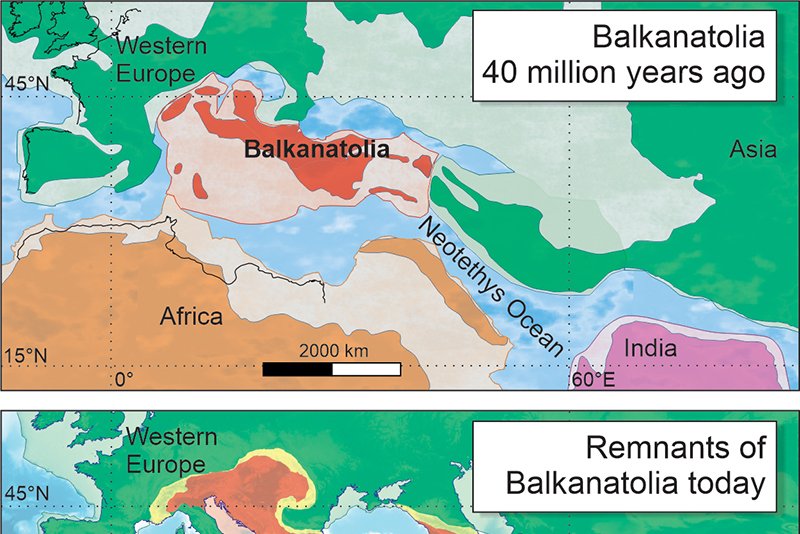A divided France votes amid a 'shift to the right'
Has freedom disappeared in France? Romy Strassenburg thinks so. As Emmanuel Macron and Marine Le Pen face off for the role of president, the journalist explains why she's scared — and why others aren't fearful enough.

Emmanuel Macron and Marine Le Pen are the 2022 finalists for French president
DW: You wrote a book entitled "Adieu liberte — How my France disappeared." What was "your" France like?
Romy Strassenburg: Like many young Germans, especially women, I had illusions of what France was all about. I thought it was the land of freedom and "savoir vivre" [the idea of knowing how to enjoy life: Eds.], something I always missed a bit in Germany. Once I started living here, I saw this France disappear very quickly. Or rather, I realized that, on the one hand, it is an illusion. It is a society that functions much more hierarchically than what I knew from Germany. On the other hand, it was a time when freedom disappeared in a very real way. And the 2015 attacks magnified that; it was a very different France. It was only then that I realized how little freedom I actually had here, not least because of my work at Charlie Hebdo. On the other hand, freedom has also disappeared with the increasingly repressive and neoliberal policies that have imposed more and more restrictions.

Incumbent Emmanuel Macron and challenger Marine Le Pen are the two finalists in France's 2022 presidential election
What is currently dividing France?
The gap is extremely wide. Some people really have to figure out how they'll fill their refrigerator at the end of the month. I always like to use the example of the Nutella jar: In 2018, large supermarkets in the countryside had Nutella on sale, and people snapped up the jars. There were videos on social media, and people made fun of the customers, saying, oh God, they eat such unhealthy stuff and they're throwing themselves at the discounts! That's what they were saying in Paris.
However, in interviews, people told my colleagues that for their children, Nutella is a luxury product — the rest of the year, their kids would get substitute spreads. This simple example shows the divide: While some people in Paris judge certain parts of the population, many of them have to count every last cent. Add to that the fact that energy prices are rising very significantly and widening the gap even more.

"There's a real danger Le Pen will make it," says Romy Strassenburg, writer and journalist
What particular fears are currently influencing the presidential election?
I could say it's fear of Marine Le Pen. That would be nice, but unfortunately that's not the case. There is a real danger that she will make it. And the real fear is that people won't get up out of their armchairs to vote against her. For a while, fear of the war in Ukraine was very present. Then everyone once again thought Macron was great because he was the only one you can sort of imagine at international meetings and negotiations. Who wants to see Zemmour [a far-right candidate eliminated in the first round: Eds.] or Le Pen at a summit like that? Who wants her to negotiate with Putin? Few!
Fear of the war in Ukraine and fear of declining purchasing power influenced the election. Now, between the two election rounds, you might think people are afraid of Marine Le Pen becoming president. But unfortunately, the fear isn't so great that I can count on her not making it, as was the case five years ago.
Why has culture played a very minor role in this election campaign, even in the election programs?
Unfortunately, issues like the welfare state, ecology and climate change — which we really should have addressed and which the French listed as priorities in surveys — were hardly addressed in the election programs. As far as I am concerned, that includes culture, too, because the energy transition, for instance, presupposes a certain cultural disposition for such change to happen. People need to want a different social and economic model.
As a writer or musician, you also have to ask yourself, how far out on a limb do I go? What is my role, my task in society? ... I think many artists and performers face the dilemma of "What can I do?" ... My impression is, however, that the artist who opens his mouth and says something has somehow fallen by the wayside a bit, in Germany even more than in France.
How can France develop after the election?
Le Pen would of course be the worst-case scenario. She wants to renegotiate the European treaties, wants more sovereignty. I also don't have much hope when it comes to the Ukraine war ... Let's assume Macron remains in office: The huge success and the presence of the two extreme right-wing candidates and the Republican Valerie Precresse [the candidate of the center-right party: Eds] have changed the political culture in the country. The shift to the right has basically happened.

Romy Strassenburg's book 'Adieu liberte' was published in 2019
Now the question is, how do we manage to counteract this in the next five years? Will the left manage to influence politics and culture, for instance by being strong in the parliamentary elections in June? Everywhere the left has a say, there's more money for culture. There are other books in the libraries, there are other events, there are other people performing in theaters. And that's the bottom line. The presidential election is one thing, but in the end, it's also about who is active and committed locally.
What role do the voters of the eliminated leftist candidate Jean-Luc Melenchon play in the second round of the elections?
Jean-Luc Melenchon was in a stronger position in this election after the first round than he was in 2017. He has said, "Don't vote for the far right!" True, Melenchon did not say, "Vote Macron." But many feared that Melenchon voters now on the left fringe might move to the right fringe. So Melenchon's call might not be such a bad thing.
We're actually already looking ahead to the next election five years down the road; we have already expanded our horizons. Looking at my book "Adieu liberte," if Macron remains in office, I would like him to be so grateful to the voters that he does not restrict freedom even further and instead takes them into consideration.
It is very questionable and dangerous when I, a journalist, am no longer allowed to film a policeman and accompany him on patrol — that is new [a law passed in 2021 restricts capturing images of police: Eds.] Not only female journalists, everyone in civil society whom Macron wanted to draw into his movement has been left out. He has not kept his promise. We can't actually do what we want to do. He has not included women artists and journalists in his project. I'd like to think that the coronavirus crisis and the yellow vests made it difficult, but Macron's record is still devastating in many ways.
The journalist and author Romy Strassenburg won the German-French Journalism Award in 2008 and was editor-in-chief of the German edition of the French satirical magazine Charlie Hebdo.
This interview has been translated from German.
























